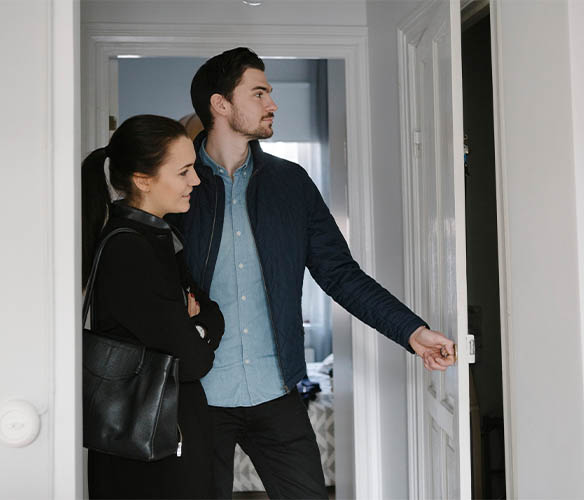Unlike private treaty sales, where the price is negotiated between buyer and vendor, auctions move quickly and when the hammer falls the sale is final. In fact the bidding can all be over within a matter of minutes. At auctions, the property is sold to the highest bidder and there is no cooling off period. As a buyer, you may feel under intense pressure to bid, so it takes a cool head and a careful strategy to buy at auction.
Home buying advice - Buying your first home at auction

Buying at auction
Losing out on a home you’ve fallen in love with can leave you feeling very disappointed and demotivated. However, with preparation, you can ensure you have a much less stressful auction experience.

Property Ownership
This guide outlines the essential steps to achieving property ownership, starting from the first appointment with a mortgage broker all the way to settlement.

Talk to your local broker today
Request a callWhat happens on auction day?
Before bidding starts, the auctioneer will give a full description of the property and then invite bidding to begin, usually from a nominated starting point.
Where possible, avoid bidding early - you may push the price up prematurely. It can pay to wait until bidding is drawing to a conclusion (and bids are being made in small increments) before raising your hand.
The best time to place your bid is after vendor bids have been placed.
If the auctioneer declares the property is "on the market", it means the vendor's reserve price (the minimum they will accept) has been reached and the property will be sold when the hammer falls. If bidding stalls prior to this, the property will be “passed in” and you have the option of entering further negotiations with the agent.
Finally, stick to the golden rule - no matter how intense the pressure, resist the urge to bid above your budget. It could mean facing difficulties funding your property once the excitement dies down.
Tips for auction day
Get in the zone before you go ...
Attend a few auctions to familiarise yourself with the atmosphere and processes so you're comfortable when it's time to bid.
Enlist the support of family and friends on auction day to keep you focused.
Even if you aren't successful in winning your property, remain optimistic – there are plenty more opportunities out there.
It helps to talk to a mortgage broker beforehand, because of their extensive knowledge of the home buying process.


